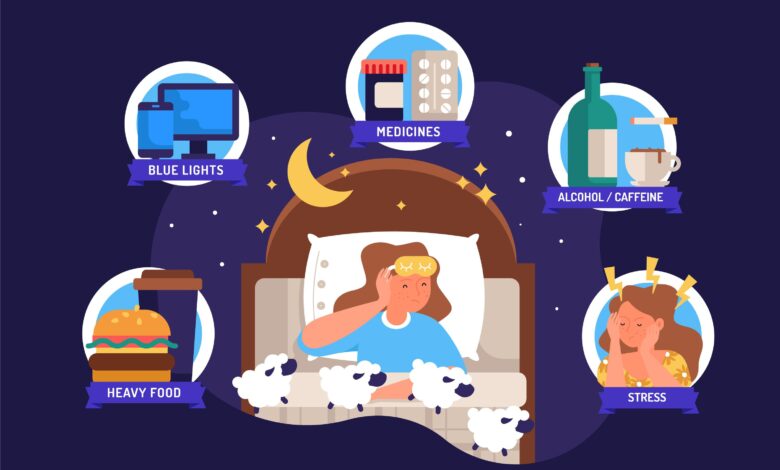12 Healthy Sleep Hygiene Tips for Better Rest and Well-Being

Sleep is an essential pillar of overall health, impacting physical, mental, and emotional well-being. Establishing healthy sleep hygiene can dramatically improve your sleep quality, ensuring you wake up feeling refreshed and energized. Here are 12 practical tips to help you achieve better sleep.
1. Maintain a Consistent Sleep Schedule
Your body thrives on routine. Going to bed and waking up at the same time every day, even on weekends, helps regulate your internal clock. This consistency makes it easier to fall asleep and wake up naturally.
2. Create a Relaxing Bedtime Ritual
Engage in calming activities before bed, such as reading, meditating, or taking a warm bath. These activities signal to your brain that it’s time to wind down, promoting relaxation and preparing your body for sleep.
3. Optimize Your Sleep Environment
Ensure your bedroom is conducive to sleep by keeping it dark, quiet, and cool. Use blackout curtains, earplugs, or white noise machines to eliminate distractions and create a peaceful atmosphere.
4. Invest in Comfortable Bedding
A supportive mattress and cozy pillows are essential for quality sleep. Choose bedding materials that suit your preferences and keep you comfortable throughout the night. Replace old or uncomfortable items as needed.
5. Limit Exposure to Screens
The blue light emitted by phones, tablets, and computers can interfere with your body’s production of melatonin, a hormone crucial for sleep. Avoid screens at least an hour before bedtime, or use blue light filters if necessary.
6. Be Mindful of Your Diet
What you eat and drink can significantly impact your sleep. Avoid caffeine and heavy meals close to bedtime. Opt for sleep-promoting snacks, such as a banana or a small handful of almonds, if you’re hungry before bed.
7. Stay Active During the Day
Regular physical activity helps regulate your sleep-wake cycle and reduces stress. Aim for at least 30 minutes of moderate exercise most days, but avoid vigorous workouts close to bedtime as they can be stimulating.
8. Manage Stress and Anxiety
Stress and anxiety are common culprits of poor sleep. Practice relaxation techniques such as deep breathing, mindfulness, or journaling to calm your mind. Addressing worries before bed can help you sleep more peacefully.
9. Avoid Napping Late in the Day
While napping can be beneficial, long or late naps can disrupt nighttime sleep. If you need a nap, keep it short (20–30 minutes) and take it earlier in the afternoon to avoid interfering with your bedtime.
10. Set Boundaries with Work
Avoid working or checking emails late into the evening. Set a cutoff time to disconnect from work-related stress, allowing yourself time to unwind and focus on relaxation before bed.
11. Keep a Sleep Diary
If you’re struggling with sleep, track your habits in a sleep diary. Note your bedtime, wake time, and any factors affecting your sleep quality. This can help identify patterns and areas for improvement.
12. Seek Professional Help if Needed
Persistent sleep issues may indicate an underlying condition such as insomnia or sleep apnea. If you’ve tried improving your sleep hygiene without success, consult a healthcare provider or sleep specialist for further evaluation and treatment.
Conclusion
Healthy sleep hygiene is vital for a restful night and overall well-being. By implementing these 12 tips, you can create an environment and routine that supports better sleep. Small, consistent changes can make a big difference in how you feel, ensuring you wake up each day ready to tackle whatever comes your way.
Make sleep a priority, and watch how it transforms your health and happiness!




